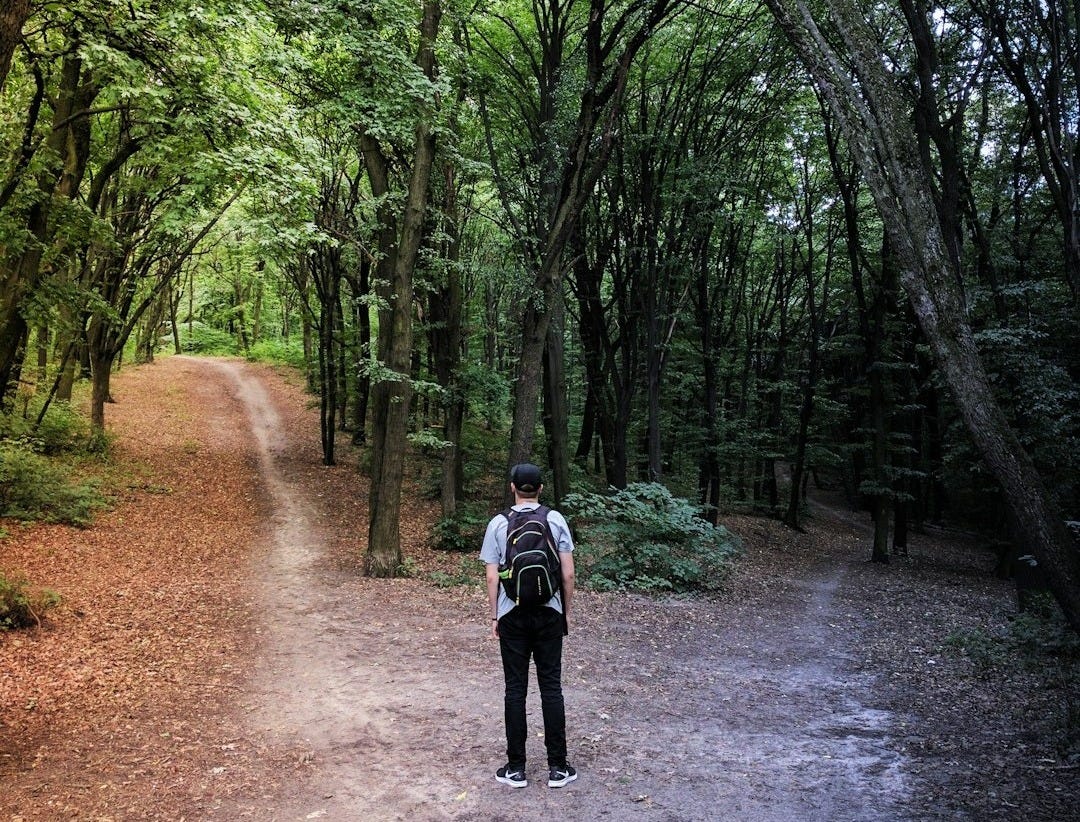Yesterday was my 29th birthday. I’ve been thinking about how we choose between the paths in front of us. Especially when one is harder in the moment but saves us from a deeper struggle later.
In this edition:
What happens when you ignore that gut feeling?
Persistence is the currency of success
Let's talk about those 'rules' for your 20s
STORY
The cost of hesitation

I knew my first high school was breaking me, so I pushed to leave. It was a two-year battle, but once I switched schools, I found my feet again.
Still, after I got my final results, I felt like a failure.
I had survived a suicide attempt, switched schools late, and sat for national exams without finishing syllabi in many subjects.
But all I could focus on was the B+ — nothing like the top performer I had been in primary school when I ranked third in the division.
That feeling of inadequacy followed me into university. Deep down, I knew Journalism was a better fit for me, but I forced myself into law school. It felt more prestigious, a way to redeem what I saw as a failure.
A year in, I realized I had only delayed the inevitable. I needed the same courage I used to leave my first school and, honestly, I should’ve exercised it from the start.
The discomfort of choosing what aligned with my life vision didn’t disappear, I had just postponed it.
The harder choice often leads to faster progress but fear convinces us that the longer painful route makes us stronger.
The type of suffering correlates to the quality of strength. Not every struggle is worth it. Some of them steal time away from your vision.
Finishing law school just because I started knowing I don’t intend to practice would’ve been a waste for me.
Restarting Journalism school introduced me to academia and then mental health research that formed the basis of my life’s work today.
Leaving law school wasn’t about “disappointing my parents again” but owning my mistakes and taking charge of my destiny.
Self-trust doesn’t mean having all the answers. It’s about listening to the most honest one you have right now, even if no one else gets it.
STUDY WITH ME
Purpose, people and perseverance. You need all three to keep building a life you’re happy to wake up to and fight for. Here are my top picks for the week.
Listen: A song for your long road ahead
IN MY WORDS
Your 20s are what you make them

I’ve been reflecting on the past decade—what I got right, what I had to unlearn, and what I wish more people knew about setting themselves up for the future.
Your 20s are often painted as a time to drift, make mistakes, and figure things out later. But I’ve found that being intentional, even when you seem “too mature”, makes a difference.
Here’s my take on three common pieces of advice based on my experience.
1. Not just hard work, the right hard work
20s are a time of self-exploration and individuation (it never stops, though).
No more organised school paths, so many people pursue degrees that may not align with their interests and goals. We don’t know what we don’t know, but we can learn.
The fastest way to gather information is to learn from the people around you, their successes and failures (read lessons).
Every major shift in my life started with curiosity. I stopped asking, “How do I excel at society’s script for success?” and started asking, “What am I optimizing for?”
Develop a grand vision for your life and build on it with every choice and lesson.
2. Hard work beats the ‘you have your whole life ahead of you’ fallacy
People say your 20s are for trial and error. You can afford to be aimless because you have decades to figure things out.
But the habits you build now compound. How you use your time, energy, and focus today shapes the options you have tomorrow.
We’re living in a time of podcasts, LinkedIn and Google where we can learn from people we previously never had access to.
Maximise this privilege.
Study, write, network, build and study again. You don’t need more money, you need to use what you currently have. Money amplifies your habits.
You won’t figure everything out, but being intentional pays off. Small, consistent efforts in the right direction set you up in ways that last-minute scrambling never will.
3. Confidence doesn’t magically appear in your 30s
We hear, “You’ll grow confident with age,” as if it’s something that happens after enough birthdays.
Confidence isn’t a byproduct of time but a skill. It comes from competence, self-trust, and repeated evidence that you can handle hard things.
I don’t feel more confident today because I’m older. I am more confident because I’ve practiced trusting myself, taking risks, learning from mistakes and standing by my decisions.
You can start at any age.
Your 20s aren’t about waiting for life to happen. They’re about laying the foundation for what comes next.
Start questioning the advice you’ve heard (including mine), and build a framework that works for you.
Your life, your timeline
Looking back, I can see how my choices made me seem too serious, hardworking or in a rush — but I had a clear vision.
Trusting myself early on means I’m stepping into the next decade confident I can adapt and excel in an unpredictable world. That’s true freedom for me.
Where do you want to be in the next decade? How much of that person can you embody in the present?
The ball’s in your court.
WN



